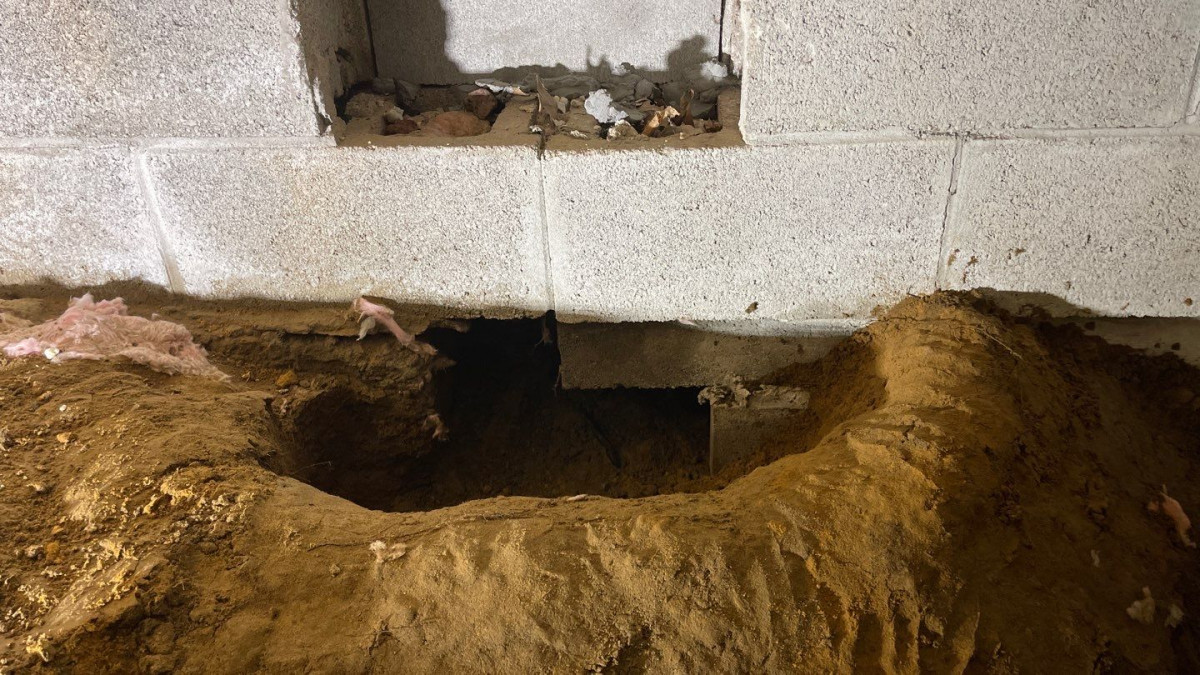Imagine you’ve just discovered a small patch of mold in your basement. You might shrug it off as a minor issue, but did you know ignoring such early signs of moisture problems can lead to significant structural damage? This isn’t just about replacing some drywall or a bit of paint. Prolonged moisture can deteriorate your foundation, leading to thousands of dollars in repairs. Plus, there’s the health risk from mold exposure. But what does this mean for your home’s overall value? Let’s explore further.
Key Takeaways
- Ignoring basement moisture problems can lead to expensive immediate repairs for water damage.
- Chronic moisture issues can lower your home’s market value and deter potential buyers.
- There are potential health risks associated with mold exposure, including severe respiratory issues and allergic reactions.
- If neglected, moisture problems can lead to increased long-term costs due to structural damage and mold remediation services.
- Investing in effective solutions such as dehumidifiers, waterproofing sealants, sump pump systems, and professional drainage services can save money in the long run.
Recognizing Basement Moisture Indicators
Even seasoned homeowners may struggle to identify the subtle signs of basement moisture problems. You’re not alone if you’ve overlooked these indicators. Let’s explore what you need to know.
 Firstly, don’t dismiss that musty smell! If your basement smells damp or earthy, it’s likely that you’re dealing with excessive moisture. This scent is a telltale sign, often indicating mildew or mold growth, which thrives in damp conditions.
Firstly, don’t dismiss that musty smell! If your basement smells damp or earthy, it’s likely that you’re dealing with excessive moisture. This scent is a telltale sign, often indicating mildew or mold growth, which thrives in damp conditions.
Notice any unusual spots on your walls or floor? That’s another red flag. Discoloration, efflorescence (white or chalky stains), or peeling paint can all point to water seepage. It’s essential to address these signs promptly, as they can escalate into more severe issues.
Feeling a surge of humidity? Your basement shouldn’t feel like a tropical rainforest. High humidity levels, especially if they’re consistent, are another strong moisture indicator. You can measure this using a hygrometer to keep track accurately.
Lastly, look out for condensation. If your basement windows, pipes, or walls are often dripping wet, you’ve got a moisture problem.
Recognizing these indicators is the first step in tackling your basement moisture issues. Don’t ignore these signs; your home’s health depends on it.
Structural Damage From Persistent Dampness
Ignoring the signs of basement moisture doesn’t merely compromise the aesthetic appeal of your home, it can also lead to structural damage if left unchecked. Persistent dampness can weaken the structural integrity of your home over time, making it unsafe to live in.
| Damage Type | Cause | Solution |
|---|---|---|
| Wood Rot | Moisture can cause rot in wooden structures, compromising their strength. | Guarantee proper ventilation, use rot-resistant wood, apply protective treatments. |
| Concrete Deterioration | Persistent dampness can lead to the breakdown of concrete. | Waterproof and seal the concrete, guarantee correct drainage. |
| Metal Corrosion | Moisture can cause rust and corrosion in metal fittings and structures. | Use corrosion-resistant metals, apply protective coatings. |
| Mold Growth | Although we’ll discuss this in more detail later, mold growth can weaken structures. | Maintain dry conditions, use mold-resistant materials. |
As you can see, ignoring moisture problems isn’t just about facing an unpleasant smell or sight in your basement. It’s about the very safety of your home. Don’t let the problem persist. Seek professional help to identify the source of the moisture and find effective remedies. It’s the smart, safe, and cost-effective thing to do.
Health Risks Associated With Mold Growth
Exposure to mold in your basement isn’t just a matter of structural concern, but it also poses significant health risks. Mold growth is often a result of excess moisture and poor ventilation. It’s more than just an unsightly nuisance; it’s a serious threat to your health.
When you’re frequently exposed to mold, you may begin to experience a variety of symptoms. These can range from allergic reactions, like sneezing, skin rashes, and watery eyes, to more severe respiratory issues, such as asthma attacks.
Even if you don’t have allergies or asthma, mold can still cause irritation in your throat, eyes, skin, and lungs.
For those with weakened immune systems, the dangers are even greater. Mold can lead to serious infections in the lungs, skin, and other parts of the body. Prolonged exposure can even lead to chronic conditions like hypersensitivity pneumonitis.
You mustn’t underestimate the health risks associated with mold growth in your basement. By neglecting this issue, you’re putting your health, and the health of your loved ones, in jeopardy.
The Financial Implications of Moisture Damage
While your health is unquestionably paramount, you shouldn’t overlook the potential financial burdens that can arise from unchecked basement moisture problems. These issues, if neglected, can wreak havoc on your wallet in both the short and long term.
Immediate repairs for water damage can be costly, particularly if the problem has been allowed to escalate. This could include replacing damaged walls, flooring, or even structural components like beams and joists. These repairs aren’t just expensive; they’re also time-consuming, potentially disrupting your daily life.
Over time, persistent moisture can also lead to mold growth, which poses its own set of financial challenges. Professional mold remediation services are rarely inexpensive, and depending on the severity of the infestation, costs can skyrocket.
Moreover, chronic moisture issues can greatly reduce your home’s market value. Prospective buyers are often wary of properties with a history of water damage or mold, as it can imply poor maintenance or ongoing issues.
In essence, ignoring basement moisture problems isn’t just detrimental to your health; it can also be a financial sinkhole. Proactive measures, while potentially requiring an initial investment, can save you considerably more in the long run.
Effective Solutions to Basement Moisture Problems
Now that we’ve outlined the potential risks and financial implications of basement moisture problems, it’s time to shed light on the effective solutions available.
You can combat basement moisture by installing a dehumidifier, one of the most straightforward solutions. It’s an appliance that reduces humidity levels, making your basement less hospitable to allergens such as dust mites, mold, and mildew.
Another practical solution is the use of waterproofing sealants. Apply them to the interior walls of your basement to create a water-resistant barrier. However, keep in mind these sealants aren’t a permanent solution to serious leakage problems.
A more robust solution is the installation of a sump pump system. This system collects water that has made its way into your basement and pumps it away from your home. Combined with a French drain, it’s one of the most effective methods of keeping your basement dry.
Lastly, proper grading of your property can prevent water from pooling around your home’s foundation. It’s worth consulting with a professional to ascertain your home has proper drainage.
Frequently Asked Questions
How Does Climate Affect the Likelihood of Basement Moisture Problems?
Your local climate greatly impacts your basement’s moisture levels. If you’re in a humid, rainy area, you’re more likely to have damp issues. Conversely, arid climates can still bring problems through condensation build-up.
Can Basement Moisture Problems Affect a Homes Resale Value?
Absolutely, basement moisture problems can drastically impact your home’s resale value. Buyers are wary of potential mold issues and structural damage, so they’ll likely negotiate a lower price or avoid your property altogether. Don’t underestimate this issue.
Are Certain Types of Houses More Susceptible to Basement Moisture Problems?
Yes, certain types of houses are more susceptible to basement moisture problems. Older homes, houses located in low-lying areas, and those built on certain soil types often face more issues with basement moisture.
What Are the Insurance Implications of Basement Moisture and Mold?
Ignoring basement moisture can hike up your insurance premiums. If mold growth results, it’s often not covered, leaving you with hefty remediation costs. Proactively addressing moisture issues can protect your pocketbook, and your home’s integrity.
How Often Should I Inspect My Basement for Signs of Moisture Problems?
You should inspect your basement for moisture issues every few months. If you’ve had problems before, you’ll want to check more often. Don’t neglect this task; it’s essential for preventing costly damage and health issues.
Don’t treat basement moisture problems like the plague – something to be ignored until it’s too late. When you dismiss these warning signs, you’re gambling with your wallet, health, and investment. Persistent dampness can weaken your home’s foundation, mold can trigger health issues, and both can depreciate property value. Be proactive, not reactive. Address these issues head-on with effective solutions, ensuring a safe, sound, and valuable property. Remember, an ounce of prevention is worth a pound of cure.




